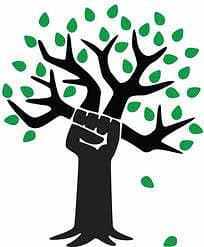

Canada’s Greatest Export Terry Etam, author of The End of Fossil Fuel Insanity: Clearing the Air Before Cleaning the Air, columnist for the BOE Report and writer for Public Energy Number One, gives an update on the oil and gas activity north of the border.
Etam explains how the country’s view on oil and gas has changed under Prime Minister Justin Trudeau.
Host Jason Spiess and Etam talk about the foundational oil and gas developments in Canada. Spiess uses his education in sports citing that in hockey Edmonton is called the “Oilers” for oil development and Calgary is called the “Flames” for natural gas.
In addition to an update on Canadian energy, the two discuss how the oil and gas industry has changed due to Environmental Social Governance (ESG) in Canada.
The two continue the ESG discussion into whether the youth is embracing this as a new religion or if ESG is purely just a new credit score with a few more bells and whistles.
Below is the raw, unedited transcript from our artificial intelligence translator.
Jason Spiess
Head over to the zoom line where we have Canada’s greatest export on the line with us terry Etem exporting that information, That energy information, public energy number one information as well as B. O. E. Report and the author of the book, the end of the fossil fuel insanity and what’s the whole title again? Mr terry adam,
Terry Etam
clearing, …
Jason Spiess
clearing the air before cleaning the air, the end of the fossil fuel insanity available at amazon as well as other places to correct
Terry Etam
Oh,
Jason Spiess
big time. Big time Barnes and noble baby. Alright. International author Canada’s greatest export as well as
Terry Etam
as
Jason Spiess
well as a blogger on public energy number one, I love that name. By the way, Public energy number one, I’m gonna I’m gonna listen to motley Crue later, Public Enemy number one. I like that motley crew first album, Livewire. That was pretty good. Hey, look at me showing my age here. Little deep, deep track on that motley Crue album. But well sir, up in Canada europe in Alberta, correct. … Well, let’s,
Terry Etam
let’s
Jason Spiess
get an update from Canada Last we spoke, the Prime Minister was waging a war against the oil and gas industry. And then the other time we spoke, he was waging a war against the fertilizer industry because they were connected to the oil and gas industry house the Prime Minister doing today, who’s he, who’s he taken out of the marketplace this week.
Terry Etam
Uh, well, it’s a friday afternoon and I really don’t want to talk about him. But uh, it’s he’s continues on with his theme and it’s, it’s singling out an industry that the latest uh program that they’ve unveiled is what they call their just transition employment program, where they’re going to uh move trying course workers to leave the oil and gas sector, we want you out of the sector and we want you to go into green energy.
And they had some of their discussion documents that were uh leaked or released, and they just make a mockery of the industry in a way, they just say, well, oil and gas workers should be able to find jobs as truck drivers or janitors, or they can install solar panels. And it was wildly insulting and um, brainless, but it passes in the public sphere these days,
Jason Spiess
but but but I bet they did it with a smile and they probably, you know, maybe even did it over a Molson. Huh?
Terry Etam
Well, I I wrote a story a couple weeks ago about profiling Canada’s climate change minister, a guy named Stephen gill bo uh from Quebec, and he’s an ex Greenpeace activist. He’s been arrested four times and he’s sitting in one of our highest positions in the government.
Jason Spiess
The
Terry Etam
Prime Minister Trudeau gloats about his success as an activist. He introduced him to joe biden. Hey, you gotta come meet my new climate Minister, He’s been arrested four times, and this guy did an interview with the new york times. It was appalling. He was just very open about it. He says, uh yeah, I, they’re saying, have you sold your beliefs to become part of the government? And he said no, I really, I just view myself as an activist on the inside now as opposed to it, but
Jason Spiess
I I gotta but wouldn’t you rather know what you’re getting though? Because in America we, you know, we have this thing called the inflation reduction act, which is making the price
Terry Etam
of eggs, oh,
Jason Spiess
it’s making everything triple than what it was before. And you know, this started 20 well, it started 20 years ago when they started doing things like save the Environment Act and then they’d go take out a, you know, a forest, they just can put a parking lot in, you know, it was just like the exact opposite of what they said. And you know, honestly, I I think and I’ve been saying this for five years, you can go back five years on this program when a lot of people in the industry started
getting really ticked off at me because I was trying to explain that they’re positioning the oil and gas industry as the next modern day leper, the modern day cigarette smoker, the coal industry, if you will, you know, Well, instead they get mad and they, you know, they’ll say, I’m crazy and all this other stuff and you know, that their world is toxic.
So they gotta make mine, right? I’m just making an observation and pretty soon it’s like I, you know, took a crap on their dog or something. Well the same people now they just quickly change their company to energy and they act like the conversation in the 4 to 5 years of shaming never existed. And it’s just so bizarre to me that when a company goes from being called oil and gas to energy they’re validating this this energy movement.
So in America in my opinion when they start subsidizing the wind energy and the solar energy and they start over regulating oil and gas. They’re doing the same thing that they’re doing up in Canada. Only in Canada. They’re just being insulting about it in America they’re just being passive aggressive and kind of lying about it. Which so pick your poison pal.
Terry Etam
Well I guess so you’re right. It’s maybe just because I was just so flagrant and it’s just like that.
Jason Spiess
But yours is more on steroids though too though. But because they are allowing some yeah they’re allowing some drilling and some common sense in America still. But you
Terry Etam
see the U. S. Has the capacity which is one reason I love your country. You have the ability to self examine and the ability to push back against these things. You see states pushing back against things saying this just isn’t right we’re just not going to allow this and not everybody agrees and that’s fine. Nobody. No you’ll never see everyone agree on everything that’s life and that’s healthy that you get different perspectives and the the U.
- Has that those mechanisms where you’ll get a committee that will pull apart the connection between the FBI and twitter or something. And it’s like we gotta look into this Canada. We just pretend it doesn’t exist. So we uh the bureaucratic machine just keeps on chugging. Is
Jason Spiess
this um is this centered around E. S. G. Environmental social governance? Is a lot of this centered around that up in Canada.
Terry Etam
Yeah a lot of it is it’s it’s like there’s um there’s languages that either side can hear and I think that’s where this this conversation gets so horrible and energy just got caught in the
Jason Spiess
languages
Terry Etam
change. I would say the climate change camp is of the mindset that if we don’t reduce emissions immediately, we’re all going to die 10 or 20 years, the oceans are gonna flood everything that becomes unlivable refugees everywhere. And the cause of that is fossil fuels. We have to stop fossil fuels. And so that’s all they see and that’s all they act in accordance with.
And then the other side, if I can call it that the realist the plumbers I call them versus the academics, they say well you can’t do that. It doesn’t work that way. And and they say it has to work that way because we’re doomed. And so you have these you have these these viewpoints which just are are totally they argue totally different things because their premises are built on two separate things.
It’s like when someone says, we have to do something for the good of everybody, uh that’s and that drives every one of their actions and they don’t listen to the people say, you can’t do it. That just makes them even more determined to say, well, we have to and that’s why you see these accelerations of programs and like, okay, well, we just, we have to double down now on emissions reductions because we’re not going fast enough and then trying to build some more coal plants and India
builds more coal plants because they have to, they’re like the plumbers of the economic world, they’re like, we got, we have billions of miles to feed and we’re going to feed them. So global emissions goes up so that the Western guys say, well, we have to cut emissions even more because global emissions are going up. We have we have the money and the the depth of talent and resources and whatever to make that happen here.
We just keep layering these things onto our industries and then we have the inertia of the industry itself, like you said, they just keep doing what they do and they morph to to uh to keep going, like you say, the programs and the style they’re adopting and whatever and people selling emissions free cargoes of gas, which is, I don’t even know what they’re talking about because the people that hate fossil fuels hate natural gas, They hate cold and they don’t care what you’re going to
call it, but it’s playing the game. So it gets it works. So I don’t know how, I don’t think we’re gonna I think we will muddle through this but I think it’s gonna be pretty brutal. Are
Jason Spiess
you, are you guys doing anything up there? You guys have any activities Edmonton, can they even be called the oilers anymore or do we got to change their name?
Terry Etam
Well that’s what’s so weird about there’s there’s in some ways it’s a bit like the U. S. So there’s the the areas of uh development or production which will just keep chugging. So there’s kind of a couple of big regions. There’s one in Northwestern Alberta which leaks into british Columbia.
The peace river arches called. It has the Montini and Duvernay formations which are similar quality wise to the marcellus in Appalachia or like they’re huge. It’s a big area and just just a ton of resources and reserves in their last for decades. And yeah, mostly gas and oil. And
Jason Spiess
now how far is that from say say you mentioned british Columbia. So you’re on the coast. How far is that from the coast?
Terry Etam
It’s quite a ways from the coast for four or 500 miles to the border.
Jason Spiess
Okay, on the other side of the border then. Okay. Got it.
Terry Etam
Yeah and and that it’s about, …
Jason Spiess
oh jesus, you’re really driving far okay
Terry Etam
because
Jason Spiess
Calgary because I remember my, my education comes from hockey, so Calgary flames is natural gas and Edmonton oilers, oilers, so Okay, all
Terry Etam
right, … come
Jason Spiess
on, are you for
Terry Etam
real? … Canada’s
Jason Spiess
greatest export. Ladies and gentlemen, …
Terry Etam
Oh
Jason Spiess
no, you just got an amplified off that one. That was awesome. Okay, so, and by the way, in Utah Jazz I think was new Orleans originally. So go on. Oh,
Terry Etam
the other
Jason Spiess
big, yeah,
Terry Etam
yeah, the other big area in Alberta that is the oil sands of course, and those are different because they’re like, mine’s almost there, they’re really long life assets, so there’s like a couple $100 billion got sunk into that over the past couple of decades and those will just chug forever. So, so no matter what happens with, no matter how hard the government wants to kill it, there’s a couple of big key core areas where they don’t really need that much more pipe or that much more
infrastructure and they can just keep going. So the industry is in a very weird place now because it’s spitting out all of this cash and the companies won’t reinvest it to grow, so they’re spitting it out to shareholders in the US getting rid of debt and uh and then that causes this weird environment where there’s all sorts of money floating around, but it’s just heading out the side doors, it’s not like it’s not turning it into a booming economy necessarily uh it’s like there’s a
lot going on royalties to the government and companies are paying taxes and shareholders are making a lot of money, but you’re not feeling that vibe in the of where everything’s going crazy, Even the service companies like the drilling rig companies are, they’re flat out, you can’t find the drilling rig, but there’s a lot fewer rigs and there used to be, so it’s not the same um not the same boom mentality.
And then the fact remains to they can’t get employees to come work in the industry, they’ve been chased away. So uh and that’s I think that’s a universal problem. I’d like to understand better what the there’s business activity all over the place that’s being held back because there aren’t enough qualified tradespeople and plumbers and mechanics and uh male rights and that that’s that’s a whole study needs to be done on that because it doesn’t show up in unemployment if you have.
I know some people that own small companies and they have order books uh coming out there or offices and they but they can’t fill them because they can’t find crews to build stuff. So it’s um but that doesn’t show up in a in a statistic anywhere about unemployment renting, but it’s it’s a real problem.
Jason Spiess
Yeah, I don’t believe any of those unemployment numbers to be honest. Um Because when when you look at the amount of layoffs that are going on, there’s no way that they’re adding jobs. Like I was talking to my ex, uh, she’s, she’s got restructured three times with her job since the beginning of the year because they’ve had layoffs and layoffs and layoffs, right? And so she’s kept her job and restructured around all these different things. And like she texted me, she goes, yeah, we
just laid off another round of people yet we’re hiring, how does that work? And I said, well, if you’re part of that C suite America C suite executives, that makes your six or seven figures a year and pretty soon you realize you’ve been resting on your laurels and now you’ve got to go work again. So you go get more government subsidies, you go lay off people, you go hire people for half the amount and then you give yourself a raise after it’s done for working so hard. And she goes,
Terry Etam
she
Jason Spiess
goes, yeah, I see that too. I said, well, yeah, that’s what’s been going on for a long time. What I’m, what I was just gonna look up is Neil, how are you familiar with Neil? How?
Terry Etam
So
Jason Spiess
he’s an author and I thought you might be because he wrote a book called the fourth turning an american prophecy and I interviewed this guy like 20 years ago or something like that and maybe 10 years ago. And it was fascinating because what he did is he tracked humans from the roman empire till today and we have four cycles. We go in every, it’s just, it’s like clockwork, we go, we’re consistent and yeah, and the one generation you go from is the lost generation, which we’re in right
now and then you go to the silent generation because there’s really only one way to do it and blah blah blah and nobody really knows how to do things anymore because people just came out of being lost and that’s kind of what I was gonna bring up to you, is that, you know, when I take a look at what’s happening, it just seems like a lot of these energy companies are really starting to just defined what that foundational money is or that foundational businesses like what cole happened to
cole because there’s still coal companies around their drilling or their their coal mining right in Bc Colombia, right by the coast. So they’re still happening. Um, but what they’re doing is they’re kind of controlling the industry a little bit more. And that’s what I see happening in the oil and gas industry. And now, when I see Tech companies laying off enough people to actually become percentages, 8% of the staff, 15% of the staff nine, that’s a substantial amount of layoffs
happening and these are all thought workers. So these people are not manufacturing, I actually think this is where the next generation of energy workers are gonna come from is they’re going to go get re educated at a trade school and go do this energy transition because they have debt, they got student loans, they got mortgages, they got a car, they got whatever credit cards. So I think that’s kind of what’s happening. Yeah,
Terry Etam
well, the, the energy transition as an employment engine is unbelievable. Like there’s, I can’t even tell you the number of people I know working on energy transition stuff versus looking for oil and gas is like 100 to 1. It’s, it’s not even remotely close. There’s so many new companies being started. There’s, there’s guys, one of the guys that a good friend of mine who’s one of the um, he’s a fiercely capitalist, has no faith in the climate madness, alarmist stuff.
Uh, he went from being an oil field service guy now, he’s started a hydrogen company because that’s the way it’s going. So, um, and there are lots more like that, they’re like, well that’s where the growth is gonna be. So, uh, so there’s a lot of the oil patch is transitioning in a rational way, which is what I would have hoped all along anyways, if this was being handled properly.
This, the energy transition is a natural offshoot of the energy industry, it should be going hand in hand, It should be like uh, wrote an article about this recently too. Like this should be the most exciting time to be an energy ever. Like, it’s, you have this infrastructure based with a lot of money and a lot of, a lot of money these days especially, and and to start developing new things to make it work better to make it different.
Can you blend hydrogen in a natural gas pipeline, can you? All of these things? It’s just like so exciting and interesting. But it’s turned into this fight for survival because you gotta play defense, you gotta, you have to have a suit of armor on to go to work because everybody’s trying to kill you.
And it’s just, it’s absurd and it’s uh, I wish it would stop, but it won’t as long as we have the people we have that are running the show, but it’s where the boots on the ground are actually kind of morphing into a shape that’s gonna be useful. I think so,
Jason Spiess
yeah. Honestly, you know, we’re getting a little bit existential here because I think what we’re going into is a global economy. I think that they’re, you know, trying to make it so most of our prices are going to be very similar, at least by continent, if not by globe. It depends on if you’re ordering from amazon or alibaba, I guess ali baba, depending on how you would like to pronounce it.
And oh no, and I was gonna say what I, I guess what I see coming is a is a four tiered solution, I guess to where and I don’t know how it’s gonna play out, but this is how I see it happening. They’re gonna go and like take an apartment or take a house or whatever it is, right? So you’ll have one crew that will go in and demolish it, and then you’ll have another crew come in and recycle it.
And then you’ll have another crew come in and build these new energy efficient homes that spy on you, because remember they’re all gonna spy on you, they’re gonna control your temperature and they’re gonna spy on you. Maybe not all the time just when they need to and then, and this is the most important one. The cheerleading team is gonna come in with a bunch of people to tell you how great it is to tell you how to think and how you feel and if you decide that you don’t like that, well,
it’s not gonna go well for you. And so it’s just honestly, I think that’s gonna be the, probably the next 50 years across the planet is going to be some form of that four tiered system in the economy. I think so.
Terry Etam
Uh Well, it’s interesting. It’s uh, it’s certainly plausible. I think that a little bit of a different angle, but just maybe get to the same point is that if you look at the global broad strokes over the past 30 40 years, like there’s the the West had wealth and they bought more and more crap, which we outsourced to countries that had cheap labor and resources and, and increasingly over time they weren’t scared of the environmental penalty penalty of processing raw materials and
making raw rare earths and whatever else, which is why china has such horrific environmental issues in Russia and other places like that. And so but that’s changing now, right? Those those countries are no longer the cheap labor pit and they know long are willing to play by the same games and they own all the processing technology for minerals and raw materials or whatever.
They’re still voracious consumers of energy and everything else. They have so many people there. But the West is going to go through something I think like you’re saying, and maybe that becomes more balanced globally to is the I don’t think china and India I think that the the global elites that make the big high level decisions and point us in different directions. I do think there’s some truth to that.
They do not want to see china and India and africa live like we do in the West here, they will grow to some degree of success to that. But I think the West will be brought down from, there’s I think you’re right, I think that we’re gonna be monitored for our carbon footprint and how much we can travel and what kind of food we eat and everything else.
Jason Spiess
How old are your, how old are your kids?
Terry Etam
15 and 17.
Jason Spiess
So okay, same age as mine, mine 17, you’ll be uh well I’ll be 17 in April I guess. And you know, so I’m I’m around a lot of you know, kids, a lot of high school kids and junior high kids and college kids just at his, you know, he’s in wrestling for example, he was in Pokemon for a while. So I listen to a lot of what is going on and it’s hard for the average person to understand that.
But you do because you’re a writer and other writers understand what it means to listen. You’re you’re always listening, even when you’re not because it’s the way your mind is wired. You’re always looking for a good story, you know, you’re always looking for. Yeah, puzzle to solve what’s a fun angle. It’s it’s entertainment, whatever, you
Terry Etam
know,
Jason Spiess
and I’ve been noticing this for a while, especially with the kids to where they’re really connecting with this E. S. G. In this climate change, this environmental movement because they’re all tied together. And how is E. S. G. Accepted in your country with the youth because here, I’m not kidding you, my meeting, I just came from the 77 year old person in that meeting asked me is E.
- G. Replacing religion. And I’ve been trying to explain that for four years that I think this whole climate change movement is replacing religion. They’re doing it through the original sin, The garden of Eden, look at us. We’ve destroyed. We have to, you know, a tone and repent and all this stuff and only they have the answer type of a thing. People think I’m crazy not the 77 year old guy that heard about E.
- G. For the first time. He thought he just he brought it up on his own. And so um what how are you guys viewing it? Do you think it’s kind of as a replacement for religion for the youth? Do you think it’s just an actual way? Like a credit score? Only two. Alright. We’re just gonna judge your finance loans based on this. How are you guys viewing GSG up there?
Terry Etam
Well I think there’s a pathway where the kids, I don’t know what they trust anymore and and they know what they have to do to get good marks. I was helping my my son with social studies, we call it what you call it down there, but just civic events and how society works and whatnot. And it’s full of what you’re talking about and and there there certainly good aspects to it.
Like you have to preserve the environment and you have to whatever without getting too far into the dogma. But that whole E. S. G. And climate thing like you’re saying, I think that they do believe it because it’s just view there’s a view that it’s unacceptable to think any other way and it’s not even really uh handed them at the same time. My daughter did learn something about fossil fuels in school, that they’re the usefulness of them.
But I think maybe that’s just because we’re in oil and gas town, I’m not sure. But I think as kids and people get more urbanized, they get farther away from where things come from. So I think the youth are going to hit this point where they go, wait a minute. This doesn’t work. Like you guys have been saying this forever and maybe it’s just the generational distrust of the adults before them, but they’re being told that wind and solar can take over and that they’re the cheapest form of
energy and that they’re coming and everything else is on the way out. And, and there’s so much science in quotation marks backing that up, that they’re like, well, I guess that’s true. And, and then I think the issue gets to be when they get up into decision making, uh, years, that they realize that this isn’t quite what they sold us, but maybe that’s nothing new.
Maybe every, every generation is kind of like that where they have to realize that the previous generation was operating in a way that, that, um, there was some reasons for it to be that way, that you can’t just throw everything out. And I think the sixties generation is a little bit comparable where there was a rebellion everywhere. And then, um, before my time a little bit, but there was, that was the state of the protests everywhere and whatever else, those people turned into
suburban parents and they’re like, yeah, whatever. I got to get the kids to school. So there’s, um, I think that that will happen with this generation too and you, and everyone is ideal for a lot of people are idealistic when they’re young and you see that in universities, a lot of colleges where it’s very idealistic places, people are doing the roads as an adult for the first time and they want the world to be a better place and it’s, that’s a great thing.
And then at some point there’s a lot of that inertia of reality that catches up with them. So the youth of today are different. Um, I don’t think the people talk about the rate of change and I just don’t see that the talk to somebody who’s 100 years old now that has changed. They’ve had a lifetime that has changed in an unbelievable way. If you talk to somebody who’s 18 changed to them is using an iPhone 14 versus the iPad they grew up with and it’s, there’s new apps and there’s new,
whatever. But it’s this, it’s, I would argue it’s more stagnant than what the previous generations have gone through. Talk to your grandparents and what did they do when they were a kid or they saw automobiles for the first time or whatever, uh, that’s changed. Um, and, and kids now like a five year old kid, even Children that aren’t well off have been on planes and flown around the world and you know what that’s like they know at an airport is like they know all of this stuff and, and
uh, so there’s there’s sort of a steady state and I think that the big arc of change to me is the fact that wait a minute this way that we live is really hard to duplicate for eight billion people. It wasn’t that hard when it was just some countries and we could go wherever we want and need more copper. Let’s go to peru kind of deal with the government.
We got more copper. Oh we’re out of whatever zinc there, we’ll go over here, we need oil and gas will talk to Guyana that that those days are drawing to a close I think. But at the same time the demands of that bigger slice of the world are increasing. The average citizen of India 1.3 billion people and we forget that just how big those countries are china.
2.5 billion people between the two of them africa is 1.2 billion people and they’re all going, we’re not sure we’re gonna listen to you guys. We got our own trajectory here mapped out. Um, and so I think we kind of get lost and what we see as the world because we’re used to defining it culturally and everybody wants to be an american or Canadian poor second choice if you can’t get into the U.
- You come to Canada. Uh, but, but we’ve been kind of the way we view ourselves as the gold standard of where everybody wants to be in the way to live with some justification. We have better health care, we have um, transportation, we have cars, we have dynamic economic engines here. And so that has been the role model for the world, the people that want to develop that way.
So, but as they go up that path and we tell them they can’t. I think that’s a big problem too that this generation is gonna have to to deal with. When they say here’s how the world should live and the rest of the world says, I don’t think so. … Well
Jason Spiess
If your child is so special that they are one in a million, then there’s what, 1300 of you in China, 1200 of you in India.
Terry Etam
Well,
Jason Spiess
I saw that once on a video and I went, boy that that is the best way to tell a parent their child is not special. If your child’s one in a million. Well, there’s 1200 of them and in uh, china and India. So that’s good luck. What do they, what do they say? China has more honor students than America has students. This was back in 2010. Yeah. Oh yeah, there’s a, there was a video circulating around 5 4010 just explaining what happened to England in the 19 hundreds and it just said okay guess
this country world economic power blah blah all these bitch things. And it’s it’s said England in 1900. And then it just talked about the shift that’s coming with china on how America has been resting on its laurels and china has just been working overtime. And then the end of the video it’s called shift happens S. H. I. F. T. Shift happens. Yeah.
And there’s even a revised one. But it just kind of goes through a bunch of stats and explains the different things. If you really want to blow your mind, we have just a couple of minutes left. Um there’s a video called Prometheus I believe it’s called and it just goes in the future of media And it talks about how eventually copyrights are gonna go away and all these different things. And um it’s been pretty accurate now.
It’s been out for about 20 years and it started during the blog revolution. And and I think they’ve updated a couple times just uh you know, put in the iPad instead of the iPod, you know just to update a few of those things that have changed. But for the most part the plot yeah it’s been been going so and you can see where copyrights are now going to go away with this ai software.
Terry Etam
Yeah. And that’s bad for Art as well. I feel bad for artists and writers.
Jason Spiess
Yeah. …
Terry Etam
For
Jason Spiess
schools are going to change, art’s gonna change creativity is gonna change the first time I saw it. I saw immediately how powerful it was. I knew I had to adapt,
Terry Etam
I
Jason Spiess
knew I could not fight it and so I’ve been figuring out a way to incorporate it into my life and it’s just I have it basically just that’s kind of a writing assistant right now. I used to actually ai quite a bit actually um now that I know how to do it. So um anyway, but uh real quick, how can people get in touch with you? I’m taking a look. We only got a couple of minutes left. So how can people give you some business?
Terry Etam
Oh sure. Well I write every week or every couple of weeks at b OE report these days. That’s mostly where I keep busy bot report dot com. And they can find my articles there under uh columns and um my email address at the bottom of every one of them. Uh so they can reach me directly by email or just buy my book if they don’t want to listen to me or write me an email and uh Yeah, here what? Canadian Wind sounds like …
Jason Spiess
Gordon Lightfoot. Canadian wind. Alright, okay
Submit your Article Ideas to The Crude Life! Email studio@thecrudelife.com
About The Crude Life
Award winning interviewer and broadcast journalist Jason Spiess and Content Correspondents engage with the industry’s best thinkers, writers, politicians, business leaders, scientists, entertainers, community leaders, cafe owners and other newsmakers in one-on-one interviews and round table discussions.
The Crude Life has been broadcasting on radio stations since 2012 and posts all updates and interviews on The Crude Life Social Media Network.
Everyday your story is being told by someone. Who is telling your story? Who are you telling your story to?
#thecrudelife promotes a culture of inclusion and respect through interviews, content creation, live events and partnerships that educate, enrich, and empower people to create a positive social environment for all, regardless of age, race, religion, sexual orientation, or physical or intellectual ability.
Sponsors, Music and Other Show Notes

Studio Sponsor: The Industrial Forest
The Industrial Forest is a network of environmentally minded and socially conscious businesses that are using industrial innovations to build a network of sustainable forests across the United States.
Weekly Sponsor: Stephen Heins, The Practical Environmentalist
Historically, Heins has been a writer on subjects ranging from broadband and the US electricity grid, to environmental, energy and regulatory topics.
Heins is also a vocal advocate of the Internet of Everything, free trade, and global issues affecting the third of our planet that still lives in abject poverty.
Heins is troubled by the Carbon Tax, Cap & Trade, Carbon Offsets and Carbon Credits, because he questions their efficacy in solving the climate problem, are too gamable by rent seekers, and are fraught with unreliable accounting.
Heins worries that climate and other environmental reporting in the US and Europe has become too politicized, ignores the essential role carbon-based energy continues to play in the lives of billions, demonizes the promise and practicality of Nuclear Energy and cheerleads for renewable energy sources that cannot solve the real world problems of scarcity and poverty.
Look at what’s happened to me.
I can’t believe it myself.
Suddenly I’m down at the bottom of the world.
It should have been somebody else
Believe it or not, I’m walking on air.
I never thought I could feel so free-e-e.
Barterin’ away with some wings at the fair
Who could it be?
Believe it or not it’s just me
The Last American Entrepreneur
Click here of The Last American Entrepreneur’s website

Studio Email and Inbox Sponsor: The Carbon Patch Kids
The Carbon Patch Kids are a Content Story Series targeted for Children of All Ages! In the world of the Carbon Patch Kids , all life matters and has a purpose. Even the bugs, slugs, weeds and voles.
The Carbon Patch Kids love adventures and playing together. This interaction often finds them encountering emotional experiences that can leave them confused, scared or even too excited to think clearly!
Often times, with the help of their companions, the Carbon Patch Kids can reach a solution to their struggle. Sometimes the Carbon Patch Kids have to reach down deep inside and believe in their own special gift in order to grow.
The caretakers of Carbon Patch Kids do their best to plant seeds in each of the Carbon Patch Kids so they can approach life’s problems with a non-aggressive, peaceful and neighborly solution.
Carbon Patch Kids live, work and play in The Industrial Forest.
Click here for The CarbonPatchKids’ website

Featured Music: Alma Cook
Click here for Alma Cook’s music website
Click here for Alma Cook’s day job – Cook Compliance Solutions
For guest, band or show topic requests, email studio@thecrudelife.com
Spread the word. Support the industry. Share the energy.





